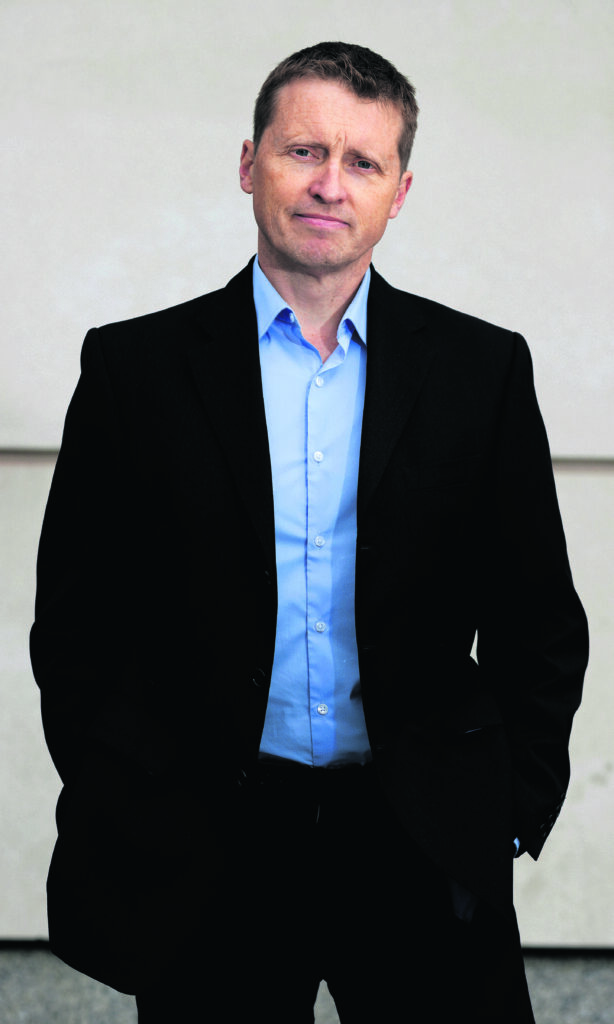There are high hopes that Cop26 will unite the world in responding with urgency to the climate change emergency, with debate undertaken by world leaders leading to significant and, literally, world-changing action. Leaders at Cop26 have a unique opportunity to provide a strategic framework to motivate senior businesspeople, both within Scotland, and within their own countries, to take appropriate action to mitigate the impact of climate change.
However, action can only be taken once there is a thorough understanding of the issues and the solutions that can be implemented. The greatest weapon we have in the battle against climate change is education. Not for schoolchildren, but for managers and those in authority with the power to make changes now.
We have run out of time to only educate our children on this all-encompassing issue and a lack of knowledge is holding back action. The need for this has never been greater or more urgent. Cop26 follows hot on the heels of the UN’s IPCC (Intergovernmental Panel on Climate Change) report which labelled global warming as a ‘code red
for humanity’.
As we move towards the challenging targets we have set to reach net zero, upskilling is vital. This is reflected in the recent report released by the Climate Emergency Response Group (CERG) which outlined the key actions the Scottish Government must take now to accelerate its response to the climate emergency. Among the 12 immediate actions was a call to upskill Scotland’s
workforce.
The Royal Scottish Geographical Society (RSGS) has recognised this need, and taken a pioneering role in climate change education with the launch of a new online course, Climate Solutions, in which participants can learn from the world’s leading experts on climate change. This is a collaboration between RSGS, the University of Edinburgh, the University of Stirling, and the Institute of Directors (IoD) Scotland.
Mike Robinson, CEO of RSGS and the innovator behind Climate Solutions, recognised that everyone needed to be on the same page in their understanding before they could work collaboratively together on solutions: “It became more and more apparent in discussions with a lot of businesses, even in the
energy sector, that their knowledge of climate change was not particularly good. Until everybody’s up to a certain point in learning, how are you meant to have an intelligent conversation about what to do next?
“There was a huge deficit that I felt needed to be filled. Which is why I ended up writing the course.” This sentiment is also felt by partner, IoD Scotland, with its national director, Louise Macdonald commenting:
“From my conversations with our members and polling we conducted at our recent global conference, whilst there was a clear shared understanding of the urgency we require, there was worryingly little consensus on the ‘how’.”


It is clear the need for understanding has never been greater. Climate Solutions aims to bridge the gap between lack of knowledge and action, providing a quick, simple, and rounded introduction to the fundamentals of climate change, helping explain how everyone and every organisation can play a role
in reducing emissions, and informing businesses and organisations so they can better plan and predict future trends, legislation, and change. It focuses on the need-to-know information and outlines the key solutions managers can implement.
Several forward-thinking organisations have already enrolled their staff members on to Climate Solutions. This includes leading global technology enabled solutions provider, Jacobs, which is encouraging all employees to complete the course as part of its efforts to ensure they understand the role they can play in climate change action.
Zoe Haseman, Jacobs vice president, Global Sustainability, said: “We cannot underestimate the importance of greater collaboration and education for transformational action on climate change. The Climate Solutions Accelerator course has provided a valuable learning resource to educate our
people and empower them to act. It is only by garnering a collective response that we can ensure business, the communities in which we live and work, wider society and our natural environment survive and thrive for generations to come.”
NatureScot chief executive, Francesca Osowska, added: “Climate literacy is hugely important. The Climate Solutions courses are an engaging and stimulating way to get to grips with all the challenges of our changing climate, forming part of our own internal climate change learning, ensuring that all staff get a thorough grounding in what they must do in their role in order to help us as an organisation move towards net zero by 2035.”
Mike Robinson added: “We also need to remember that net zero isn’t actually the end point, it’s a moment of the journey to being carbon positive. What happens in Glasgow is important because whatever is committed to at Cop26 will determine the next decade of action globally. Whilst Cop26 has increased awareness of the climate emergency in people’s minds, I think most are still stymied by what they are supposed to do.
“The danger is that if people are not guided by some sort of strategic solutions framework, then there is a danger that the responses will be ad hoc with no momentum or direction. We must all pull in the same direction. We need to be educating people in management
now.
“Of course, we can teach our children too, but it’s up to people who are in authority to deal with this now. It is executives at board level who need to understand most about what needs to be done, as they are the ones who set the policy that shapes their organisations.
Some form of universal understanding is critical, and I don’t just mean the science. What we need is clarity and consistency around the solutions.”
Chief Executive and Keeper of the Registers of Scotland (RoS), Jennifer Henderson, said: “I recently undertook the Climate Solutions Professional course. It impressed upon me the urgency of making changes now. It also made me realise that viewing carbon management activities as something that happened alongside the ‘day job’ was the wrong approach. Ensuring that sustainability was hard wired into all business decisions was the fundamental shift in my thinking.”
Climate Solutions is offered in two ways: Climate Solutions Professional and Climate Solutions Accelerator.
In both, managers will learn directly from the world’s leading experts the practical solutions they can implement to respond to climate change. Currently there are 60,000 learners globally enrolled across the two courses.
Climate Solutions Professional
Climate Solutions Professional includes 16 hours of online learning and two workshops dedicated to assisting participants to develop a Climate Solutions Plan for their own organisations. Participants receive a certificate on completion.
The cost is £300 including VAT per person. Jim Robertson, non-executive director to the Scottish Government and Climate Solutions alumni, said: “It’s essentially an executive MBA on climate change and, for busy people, it’s structured so you can do it at your own pace and in your own time. It helped fill in a lot of gaps for me, augmenting the knowledge I already had. The ability to access subject matter experts was really invaluable.”
Climate Solutions Accelerator
The Climate Solutions Accelerator online course covers the essential information in just 90 minutes. Participants receive a certificate on completion. The cost is £120 including VAT per person.


Sign Up for the Course
To find out more or to sign up, visit www.climatesolutionsnetwork.com or email climate.solutions@rsgs.org.



